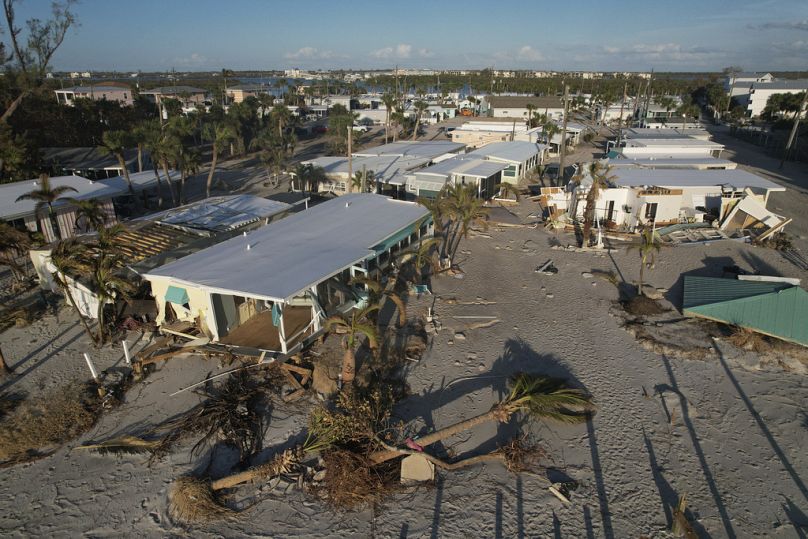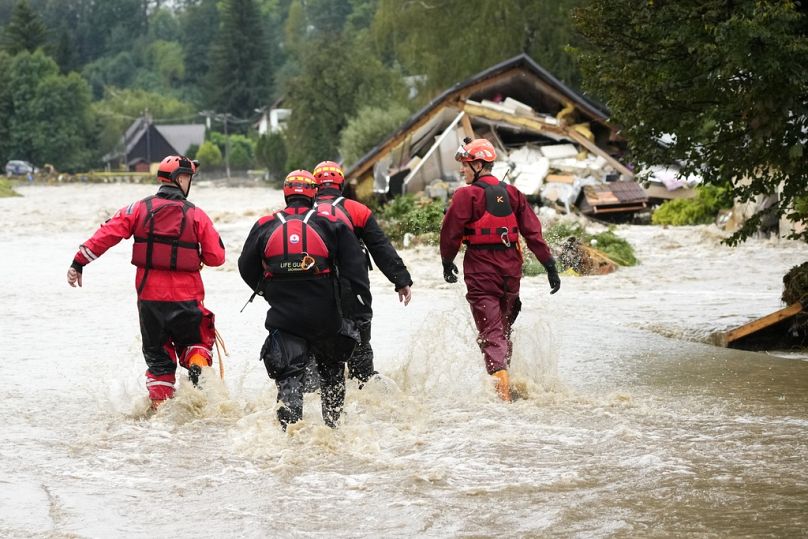3,000 risk experts and 20,000 citizens name climate change as number one threat facing the world

What do you consider to be the most significant risk to life on earth? If it’s climate change, you’re in agreement with a majority of people.
New research released by insurance corporation Axa has revealed that climate change continues to be the leading concern for the general population and risk experts alike.
The company surveyed some 23,000 people across the globe - 3,000 risk experts and 20,000 members of the public - to find out which 'future risks' they find to be the most concerning. 2024 is the third year in a row where climate change has topped that list.
The findings come shortly after hurricanes Milton and Helene devastated parts of the United States, collectively resulting in more than 240 deaths and billions in financial losses, along with an ongoing drought in southern Africa which is leading to higher poverty.
In both cases of extreme weather, experts say climate change caused them to be more likely - and more destructive.
What did the survey reveal about concerns surrounding climate change?
Axa discovered that the top five risks are climate, geopolitical instability, cyber security and risks relating to artificial intelligence and big data. The top ten was rounded out by risks relating to biodiversity and natural resources, energy systems risks, terrorism, pandemics and infectious diseases, and financial stability.
63 per cent of experts and 45 per cent of the public placed climate-related risks in their top fives - although the percentage of people considering it the most significant ranged from region to region.
Europeans ranked climate change as a pressing emerging risk year-on-year the highest out of any group, with 67 per cent of experts and 49 per cent of the public putting it in their top five.
In the United States, in comparison, those figures are just 43 per cent and 38 per cent respectively, although climate did come out on top as the most concerning future risk for that nation’s respondents.
It’s not all bad news though - climate was still ranked as the top future risk in the USA for both experts and the general public.
Globally, it also topped the list of concerns, unanimously being ranked as the biggest issue for those surveyed in Africa, South and Central America, Asia Pacific and the Middle East.
The study also highlights how people across the globe are increasingly feeling the impacts of climate change every day of their lives.
It reveals that 77 per cent of the general public now say they feel vulnerable to climate change and its effects in their day-to-day life. That’s up from 73 per cent in last year's survey, suggesting it’s of rapidly growing concern.
Where did the expert and public respondents differ on climate change?
While Axa says the report highlights a "growing alignment" between experts and the public on the most significant risks faced by society, there did appear to be differences of opinion overall.
Both groups did agree that climate change is the most important but their thoughts on nuanced areas of the issue were divergent.
The public put pollution higher in their ranking than the experts, who were found to consider issues surrounding natural resources and biodiversity risk to be more important.
They did, however, see energy risks of equal concern, with the issue ranking in seventh place across both groups.
Regardless of the background of the respondents, Axa says that this year’s findings highlight a "growing sense of vulnerability" to climate change and other related risks.
"This study lastly shows a sharp rise in a prevailing feeling of global vulnerability that is increasingly palpable in our daily lives," Thomas Buberl, CEO at Axa, said.
"The effects of climate change are now ever present in our environment, our homes, and our health. At the same time, the rapid progress of new technologies is raising concerns about how they will contribute to shaping our world."
What can citizens do about climate anxiety?
If you are concerned about the impact of climate change on your own life, there are several steps you can take to alleviate your anxiety.
Global governments vary on the importance they put on the climate crisis, so it’s always a good idea to put pressure on them and polluting corporations.
Greenpeace suggests lobbying politicians and pressuring corporations, while encouraging others to do the same.
You can write to your local representatives to let them know what you or your community needs to protect the climate for future generations, and getting in touch with companies to encourage them to reduce their carbon footprint is also a good idea.
You can also organise or participate in boycotts or divestment campaigns.by writing to your local and national representatives and sign petitions which tackle issues important to you.
It’s also important to take personal responsibility for living a lower carbon lifestyle, think donating to NGOs and charities that are making a difference.
These include the Climate Coalition, which brings together a wide range of organisations and individuals, who support and want to take part in activities that inform, influence and raise awareness about the effects of global warming.
It’s also possible to bank with green companies, as well as invest and grow your pension. Which? found that some of the best, which refuse to be involved with fossil fuels, are Nationwide, The Co-operative Bank and Triodos and gave them all the title of ‘eco providers’.
On a longer-term scale, you may want to consider using your car less and taking more public transport, or walking or cycling to your destinations. If you can afford it, it’s worth looking into buying a more fuel efficient, hybrid or electric car, too.
Similarly, the fewer flights you take, the lower your carbon footprint will be. Nowadays, there are always new low-emission trips popping up - why not take a train trip for your next holiday, and make the journey part of the destination?
Finally, switching to a plant-based diet or cutting down meat consumption is also a positive step you can take to help the planet and it’s easier than ever, especially considering that you’d be in the company of millions of Europeans who have made that choice.
Yesterday




